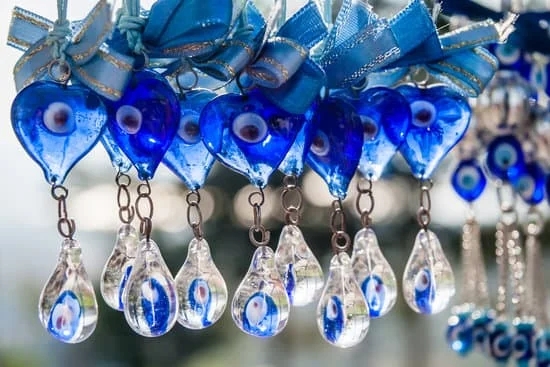Introduction
Exploring the world of jewelry jobs can be a fascinating undertaking. With many diverse opportunities available in this field, aspiring jewelry professionals have no shortage of career options to consider. From traditional roles such as goldsmiths and jewelers to modern-day positions like retail sales managers or marketing professionals, there is sure to be an option that’s perfect for anyone looking to get into the world of jewelry jobs. Whether one is interested in making, designing, selling or maintaining stunning pieces of wearable art, there is a job out there that fits their skillset and interests.
Designers specialize in creating custom pieces using sketches and computer-aided design (CAD) software while goldsmiths focus on manipulating metals like gold and silver into beautiful works of art. Setting specialists work with diamonds and gems, learning how to best showcase them in various settings while also assuring quality assurance standards are met. Retail sales managers oversee department stores or individual shops that carry lines of jewelry, helping to manage employees as well as maintain inventory levels and client relationships. Lastly, marketing professionals use creative techniques to advertise new lines and promotions along with keeping up with current trends so customers know what’s available at stores. Jewelry jobs may be plentiful but some require advanced training or specialized skills – which bring higher pay and greater job satisfaction for those who possess them.
Different Types of Jewelry Jobs
Jewelry jobs exist in many fields, from design and production to sales and repair. Those interested in a career in jewelry can find an array of employment opportunities focusing on luxury goods, fashion accessories, or even more technical crafting.
Designers have the opportunity to create beautiful pieces for clients. Designers must be familiar with the latest trends in the fashion industry and have a knack for understanding how people express themselves through the unique pieces they wear. They may create custom items from sketches, typically starting with wax models before moving onto metal molds that casters then cast and shape into beautiful pieces.
Jewelry makers are responsible for completing pieces based on designers’ sketches. They often employ metalsmithing techniques such as cutting, drilling, polishing, soldering, and engraving to turn wax models into individual components of a finished product. Jewelry makers must be comfortable working with small parts and patient enough to pay close attention to detail.
Sales staff helps customers choose the right piece of jewelry for either themselves or their loved ones. These professionals must possess both product knowledge as well as expert customer service skills since they interact directly with customers both in store and online. Sales representatives help guide inquiries into potential purchases by explaining product features and matching it with customer preferences and budget range.
Finally, there are also professionals responsible for servicing & repair within the jewelry industry who help keep existing pieces looking their best. This could involve refinishing items or resizing rings so that jewels fit properly on customers’ fingers; all while making sure that no damage is done to settings or diamonds when taking small measurements or making adjustments. Repairers often use specialized tools such as hammers, knife blades, magnifying glasses, pliers, tweezers and more.
Education Requirements
Jewelry jobs are one of the oldest trades in human history and require a range of skills and educational knowledge to pursue them. Artistic ability is a must for those interested in design, manufacture, repair or restoration of jewelry. Many schools offer specialized courses in jewelry or metalsmithing, including instruction in designing and crafting jewelry from basic metals, gemstones, and/or beads. Those interested may also have opportunity to learn about the various tools used for working with metal.
In addition to artistry and design, understanding how to appraise quality and value is important when dealing with jewelry of any kind. This can involve courses to become familiar with the changing trends in precious stones, vintage coins or collectible pieces, as well as the techniques that determine concept grading and purity levels. Proper cleaning techniques can also be an asset if someone wishes to specialize in repair or restoration services. Furthermore, being knowledgeable of types of materials used can create opportunities for those who create custom jewelry pieces as every material has different properties when combined. Business courses may also be beneficial should someone wish to start their own business either on their own or within an established operation. In any case a background working with numbers is essential for pricing items correctly for resale or spotting unauthorized substitutions among materials such as diamonds or other gemstones.
Earning Potential
Jewelry jobs span far and wide with many paths to take when pursuing a career in the jewelry industry. From designing stunning jewelry pieces to analyzing precious stones and metals, there is job security and growth potential for the experienced and passionate jewelry professionals.
One of the most common roles in jewelry is as a jeweler or goldsmith. Jewelers are responsible for fabricating, cleaning, repairing and restoring pieces of jewelry using a range of tools. Jewelers must have an eye for detail and demonstrate excellent soldering, setting, engraving, stone-cutting and polishing skills. In addition to being adept at these tasks, jewelers are also required to have extensive knowledge about gemstones, diamonds and gold so they can advise customers on their purchases. The median salary for a professional jeweler is $33,140 per year according to the Bureau of Labor Statistics (BLS).
Another sought after role in the jewelry industry is that of a gemologist or gemmologist. Gemologists have an intimate understanding of gemstones so they can inspect each piece for clarity, color and texture. They typically use advanced equipment such as microscopes and spectrometers to measure a stone’s composition and identify its source origin. The BLS reported that the median salary of professional gemologists is $42,800 annually while some experienced professionals can earn up to $80k per year depending on the company they work for.
Those looking to go even further may wish to pursue a career as a laboratory technician who specializes in assessing inspections and testing precious gems before they enter into production or commerce. This type of position requires an intense knowledge not just about stones but also industries standards across grading systems as well as local regulations applicable to certain materials. A lab technician’s average annual salary stands around $47K though this number varies drastically depending on location, experience level and other factors like occupational benefits offered by employers (such as paid time off).
Professional Development
In order to become better at the art of jewelry making, ongoing professional development is essential. One way to stay up to date on the newest trends in jewelry making is by attending trade shows, seminars, and workshops that are specifically designed for jewelers and those in the jewelry industry. These events will help you understand new market demands, changes to current technologies used in jewelry making, and interactive lessons on how to craft stunning pieces of jewelry with ease. Additionally, following blogs or websites devoted to the industry can be a great way to stay abreast of news in the field.
Another way to increase your knowledge base and overall skill set when it comes to jewelry making is by taking classes either online or at a local university or community college. By learning new techniques such as soldering or creating forged pieces, it can expand one’s abilities significantly when crafting beautiful pieces of jewelry. Additionally joining a professional organization such as the National Jewelers Association can provide further knowledge on topics like pricing models for selling your creations as well as other best business practices for running your own jewelry business effectively. With dedication and commitment, high quality professional skills an be obtained which will make anyone involved in the world of jewelry stand out from their peers.
Networking Tips
Networking is a crucial part of job searching and maintaining a career in the jewelry industry. But it’s not just about landing a job. Building up your professional contacts will help you find mentors, develop relationships with vendors, and discover the latest trends. Here are some tips on how to start networking like a pro:
• Before attending any industry events, research the people who will be there. Look up their bios and find out what they do in the jewelry field. This will give you information on who to target when networking at the event.
• When introducing yourself to colleagues, don’t just say your name—share a bit about what you specialize in and why other attendees should get in touch with you for advice or connections.
• After meeting someone new at an event, follow up through email or social media afterwards so you can keep in touch with them going forward. Offer to send helpful articles related to the person’s interests or mention upcoming events that may be relevant to them—this makes a good impression and will help strengthen the relationship over time.
• Keep track of your contacts by entering their information into an address book or contact management system, so that it’s easy to stay connected whenever needed in the future.
• Make sure that your online presence reflects your professional image—post content related to current events in the jewelry industry, participate in online conversations with industry peers and experts, join jewelry-related groups on Linkedin or other social media platforms where you can share expertise and gain connections safely from home.
• Become active in local trade organizations like The Jewelers of America or The American Gem Society as this is great way to build relationships and make connections within the jewelry world. Attending webinars hosted by these organizations will also provide valuable insights into current market trends and the latest technology used for designing pieces of jewelry.
• Join mailing lists for press releases from jewelers who are releasing new collections or announcing special promotions—this can alert you of potential opportunities before anyone else hears about them!
Job Hunting Strategies
Finding a job in the jewelry industry can be challenging. The field is competitive, with many experienced workers competing for a limited number of positions. That said, it is possible to find success when looking for a job in jewelry. It’s important to know where and how to look for an ideal position in this area.
One strategy is to start your search online by researching various jewelry companies. Also, review websites that list opportunities specifically within the jewelry sector such as Indeed and Glassdoor. Additionally, LinkedIn is a great resource for exploring job postings as well as connecting with professionals already working within the industry who may have knowledge about openings not advertised publicly yet. Building relationships with people already part of the industry will serve you well and provide informative insights into available job opportunities that aren’t always listed on third-party sites or other advertisement outlets.
Another great way to get leads on jobs within the jewelry industry is attending trade shows related to the area or volunteering within organizations devoted to promoting the sector, which are usually filled with influential people who can alert you to potential openings at their company or contacts with companies that might be hiring soon. This can also help you create a lasting network of industry associates who could potentially refer you or put in a good word if they feel inspired by your commitment and passion for working in this field. Furthermore, explore current trends and innovations taking place in the jewelry space so you are better suited when interviewing since employers typically look for employees that have up-to-date knowledge about the industry itself.
Final Words
Jewelry is an exciting and rewarding career path. However, like any job, the road to success isn’t always easy and you’ll need dedication, dedication and more dedication! It’s important to remember a few things when pursuing a jewelry career:
First, be sure to stay organized. The jewelry industry is complex and fast-paced, so you’ll want to be able to work efficiently. Invest in good tools and systems that will keep everything in order and help you achieve your goals quickly.
Second, network as much as possible – both online and in person. You never know who you might meet or what opportunities may arise! Become familiar with those involved within the industry by attending trade shows or conferences related to jewelry, or start joining networking groups related to the sector. Get out of your comfort zone and start meeting people who could help you make key contacts along this journey.
Third, learn all aspects of the business. Knowledge is power! Do research on everything from marketing strategies to technical skills such as gemology, metalwork or CAD design. Taking the time invest in yourself will pay off big time down the line!
Bursting into the jewelry industry takes commitment but once you continue learning how it works and how its players interact, there won’t be anything stopping you from achieving your dreams! With hard work ethics, staying well connected as well as learning new processes each day – success will soon follow!

Welcome to my jewelry blog! My name is Sarah and I am the owner of this blog.
I love making jewelry and sharing my creations with others.
So whether you’re someone who loves wearing jewelry yourself or simply enjoys learning about it, be sure to check out my blog for insightful posts on everything related to this exciting topic!





